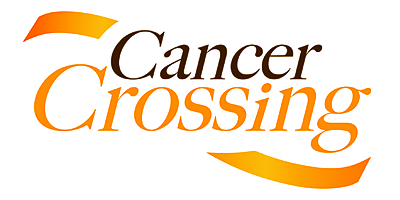Have you had to deal
with the death of someone close to you?
If so, how do you deal with the grief?
Let's face it, probably poorly.
Grief can be
overwhelming, many times to the point where you can no longer function
effectively in your life. Your job
suffers, your relationships suffer, your own quality of life begins to suffer. You begin to sleep to avoid dealing with your day to day, and/or you are short
tempered and snap at others. You know
you aren't yourself, you know you are missing the one you've lost. You feel rudderless in a small vessel on the
wide open ocean.
How do you make a
come back? How can you once again,
engage yourself in life? How can you
laugh and smile and feel good about things?
Much depends on the
circumstances surrounding the death of that person close to you. At 'Cancer Crossing' we are learning that
the cancer patients facing their own death, repeatedly put forth the wish that
once they are gone, their loved ones don't end up in a circle of grief that
puts their own lives on hold. It is
worth repeating - we hear this time and again.
Why do you think
this would be a constant theme amongst late stage cancer patients? Do you think they are just saying it to make
their loved ones feel better? The answer
is no. The wish is heartfelt and
sincere.
How can that be?
If you have ever
cared for a late stage cancer patient,
as they lay there quietly, you
probably wonder what is going through their mind. You probably feel compelled to ask, 'Are you
okay?'. They will turn to you and nod
gently. If it turns out that the
patients cancer is no longer treatable and they are going to die from the
disease, their mind plays 'catch up' to their body. The body goes from 'fight' mode to 'accept'
mode and the 'accept' mode is an okay place.
Patients in 'accept' mode accept the fact they will soon die and it's
okay with them. As they lie quietly,
they reconcile their life as a whole and the relationships important to
them. In their own way, they tie up
emotional loose ends and in their own way, say good bye to their loved
ones. They try and remember the smell
of the rain, of the grass and of flowers.
They try and remember the blue of the sky and the sound of the
rain. They pray. They look into the faces of their loved ones
and feel at peace.
Once they pass on,
even though loved ones knew the person was going to die, it is still
overwhelming and the grief begins to take hold.
Why is this? At 'Cancer
Crossing', we are not experts on this subject but through our interviews it
would appear that it is only the cancer patient who moves into 'acceptance
mode'. Family and friends still hold out
hope that the patient will get better.
Even though the doctors have said nothing more can be done and the
patient is undergoing palliative care or is in hospice care, they still hold
out hope. The pain and grief on the loss
of the person is so acute because true 'acceptance mode' can only be achieved
by the terminally ill person.
So you cry, and you
mourn and you sleep and you snap. Some
days are better than others but so many days are bad. The last thing a person
who has lost their life to cancer would want is to have their loved ones miss out
on their own life, grieving for what they have lost. Some say that if you make the motion to
smile, the feeling behind the smile will eventually come. There is a saying (there are so many aren't
there? Probably for a reason!), and the
saying goes: 'Don't cry for what has been lost, smile for what was'.
